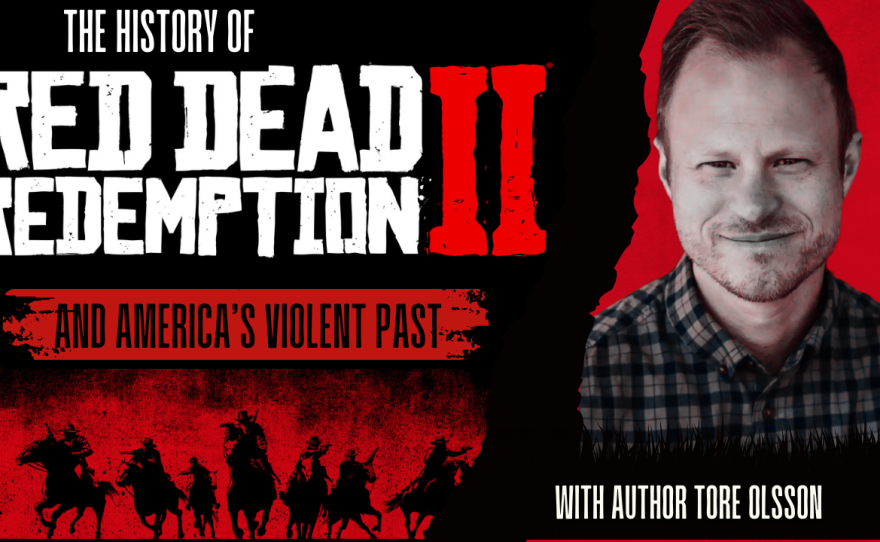
When computer game Red Dead Redemption II came out in 2018, it became a cultural juggernaut according to Tore Olsson. Olsson is a History professor and enthusiastic gamer who offered a course at the University of Tennessee on Red Dead Redemption II and the enrollment soared!
Red Dead Redemption II has sold 50 million copies. It generated $725 million in sales from its opening weekend.
“The story is set in a fictionalized representation of the United States in 1899 and follows the exploits of Arthur Morgan, an outlaw and member of the Van der Linde gang, who must deal with the decline of the Wild West while attempting to survive against government forces, rival gangs, and other adversaries. The game is presented through first- and third-person perspectives, and the player may freely roam in its interactive open world. Gameplay elements include shootouts, robberies, hunting, horseback riding, interacting with non-player characters, and maintaining the character’s honor rating through moral choices and deeds. A bounty system governs the response of law enforcement and bounty hunters to crimes committed by the player.” –Wikipedia
Tore Olsson is fascinated by Red Dead Redemption II because he believes it actually teaches history of the 1899 time period as well as providing a satisfying gaming experience. This is a game I want to play! How about you? GRADE: A
TABLE OF CONTENTS:
Preface — ix
Introduction — 1
Part I The West
- 1 The Idea of the West 9
- 2 The Indian Wars 21
- 3 The Iron Horse 33
- 4 Cows and Cowboys 45
- 5 Guns, Gunslingers, and Violence 57
- 6 The Pinkertons 69
- 7 The Wild Bunch 81
- Part II The Deep South
- 8 The Paradox of Race 95
- 9 From Old South to New South 105
- 10 The White-Hooded Menace 115
- 11 The Tragedy of Lynching 125
- 12 In the Fields 137
- 13 Working on the Chain Gang 149
- 14 Mr. Jim Crow 159
- 15 The Lost Cause 171
- 16 New Orleans, 1899 183
- 17 Votes for Women 195
- Part III Southern Appalachia
- 18 The Appalachian Myth 207
- 19 The Scramble for Appalachia 219
- 20 The Blood Feud 229
- Epilogue — 241
- Acknowledgements — 245
- List of Illustrations — 249
- Notes — 251
- Index –– 265